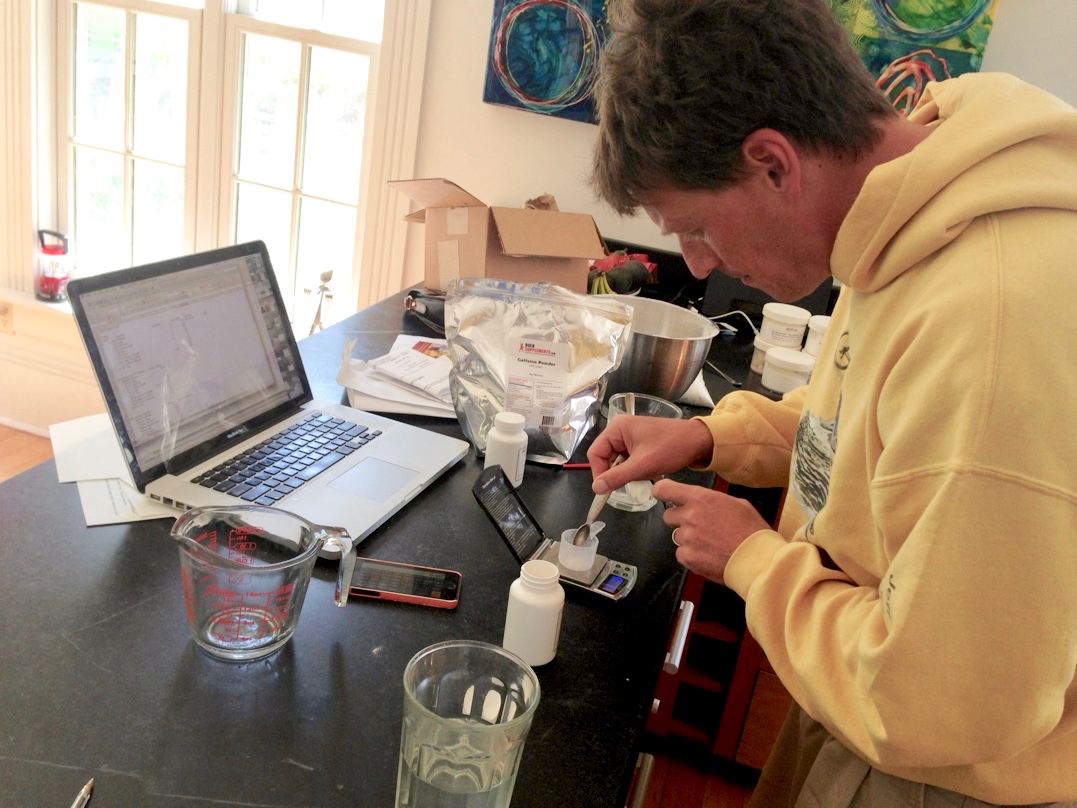
“We are helping people to stay in this community.”
The origin story of Tailwind Nutrition, a powder for athletes, shares a narrative with many businesses. It all began with a problem. But unlike many other stories about successful mountain-town businesses, Tailwind’s does not involve a chapter about moving somewhere cheaper, or more convenient.
Tailwind is building roots deep within Durango soil.
The founder Jeff Vierling, a software guy and jock living in Durango, decided to kick-off his adventure in mountain biking racing with the Leadville 100, one of the most brutal 100-mile bike races in the world.
He finished, but not before enduring debilitating stomach cramps and a fair bit of vomiting.
The gels and bars he downed during the race failed him — that was the problem that Jeff decided to solve. Surely, he thought, it would be possible to craft an on-the-go nutrition product that sustained athletes during long challenges. So Vierling began researching nutrition and athletics. He hunted down ingredients in health food stores and online. And he started blending powdered ingredients, putting them in Ziplock bags, and experimenting with them.
“I knew the fuel I wanted, the energy mix. Glucose was the primary fuel, and I knew I needed sucrose as well,” says Jeff. “And I wanted electrolytes that mirrored the composition of sweat.”
Jeff’s elixirs worked for him, and he started giving them to friends. They were so popular, that he started selling them — bags of white powder, sold in parking lots.
“That was interesting,” says Jeff.
It was a woman on another Leadville 100 race who sparked the “a ha” moment for Jeff. She was sitting down on the side of the trail, miserable. Jeff handed her a bag of powder. She didn’t finish — in fact, she had never completed a 100-mile race, after more than a decade of trying — but six months later she got in touch with him. She used his powder on a big race in the mountains of Tennessee, and crossed the finish line, crying. She credited his special sauce for a supporting role.
“That was the impetus,” said Jeff. “We said, `Maybe we should give this a go.'”
As with all businesses, the arc from then until now involved plenty of tough decisions, flops, triumphs and more “a ha” moments. Today, Tailwind Nutrition employs 21 people, is expanding to a bigger facility, is available in 800 stores in the United States and in 23 countries, and enjoys robust online sales. It’s buzzy. Attend a trail run, and chances are lots of the competitors will have Tailwind in their hydration vests.
Tailwind’s authenticity — made in Durango, by athletes for athletes — is an important part of the brand. It explains in part why Jeff plans on staying put in the small Western Colorado town.
But a much bigger reason for remaining in Durango, says Jeff, is the town itself.
“Companies take outside investment and then the investors find that space is more expensive, labor is more expensive, shipping is more expensive,” he says. “We are nowhere near any interstates or rail lines.”
Those factors have led to multiple successful startups leaving Durango for places that thrill balance sheets. In fact, employees from some of those Durango success-stories that moved now work at Tailwind.
But Jeff has grown Tailwind with intention. Instead of taking loads of investment money and then answering to investors, Tailwind has grown through its own sales. It invests in new equipment, employees, marketing and the other things that go into creating a business as sales grow.
Putting down deep roots in Durango is essential for Tailwind’s success. Staying in touch in a tactile way with their mountain-sports community matters; product development is borne out of daily communication with athletes and with firsthand experiments, rather than through white-jacketed PhDs in New Jersey laboratories.
“We wanted to create a community asset. Most of the companies in our space don’t make their own products. They co-pack them, and they are really about sales and marketing,” says Jeff.
Tourism dominates Durango’s economy, along with construction when the housing market is strong. Well-paying jobs that encourage people to raise families and buy houses are in short supply, says Jeff. He decided to boost the supply of those jobs, and to keep them in town.
“Seeing our employees buy houses is so gratifying,” says Jeff. “We are helping people to stay in this community.”
Blog post written by the Content & Storytelling Sponsor for West Slope Startup Week, Campfire Content

